Ranking the Daniel Craig James Bond Movies from Worst to Best
The sixth and latest James Bond actor starred in five movies that were both compelling and controversial. But what is the best Daniel Craig 007 movie?
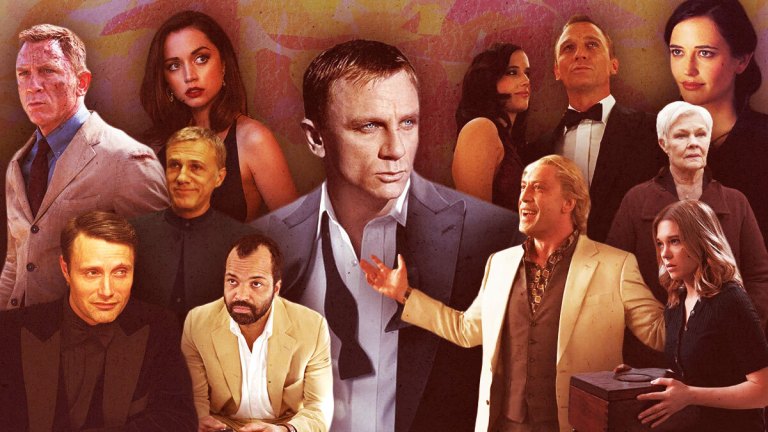
The Pierce Brosnan era of the James Bond franchise, which started so promisingly with the tough, character-driven GoldenEye (1995), had become more smug, more flippant, and more reliant on visual effects by the time it got to 2002’s Die Another Day with its invisible car and ice palace. But even though his four films were hit-and-miss, Brosnan had fulfilled his duty by bringing Bond into a post-Cold War era where new enemies lurked and the idea of a secret agent was up for debate.
With all this in mind, Eon Productions—now run by Barbara Broccoli and Michael G. Wilson, heirs to late 007 uber-producer Albert R. “Cubby” Broccoli—decided that the breezier Moore-with-a-dash-of-Connery escapades that Brosnan headlined had gone as far as they could go.
So they rebooted, and the decision was made that the next movie, the long-awaited (and long held up by rights issues) adaptation of Ian Fleming’s very first Bond novel, Casino Royale, would feature a younger, more hard-edged Bond. He would be the “blunt instrument” of the novels, just getting his license to kill and all too eager to use it.
Daniel Craig won the role handily despite a raft of contenders throwing their hats in the ring, and immediately set out to create a 007 who was perhaps even closer to the brooding, haunted, terse figure of the books than anyone who had come before him. But Craig, like just about every Bond before him (with the possible exception of Sean Connery) proved divisive as well.
Some fans missed the humor of earlier movies (there was, frankly, precious little in Craig’s tenure) while the concept of tying all five of Craig’s movies together in one continuous storyline, something the franchise had never done before, garnered a mixed response as well. Nonetheless, Craig’s movies maintained a consistency of tone throughout his run, and with the actor becoming a co-producer on several of them, he gained more creative input than perhaps any 007 before him.
In terms of box office, Craig technically had the most financially successful run of any Bond, although inflation certainly helped with his totals as opposed to those of Moore or even Brosnan. And he certainly took Bond in a darker direction than ever before, made the character more vulnerable and human than his predecessors, and—with 007’s death at the end of No Time to Die—left the producers in perhaps the biggest quandary of the franchise’s history: who plays Bond next and how?
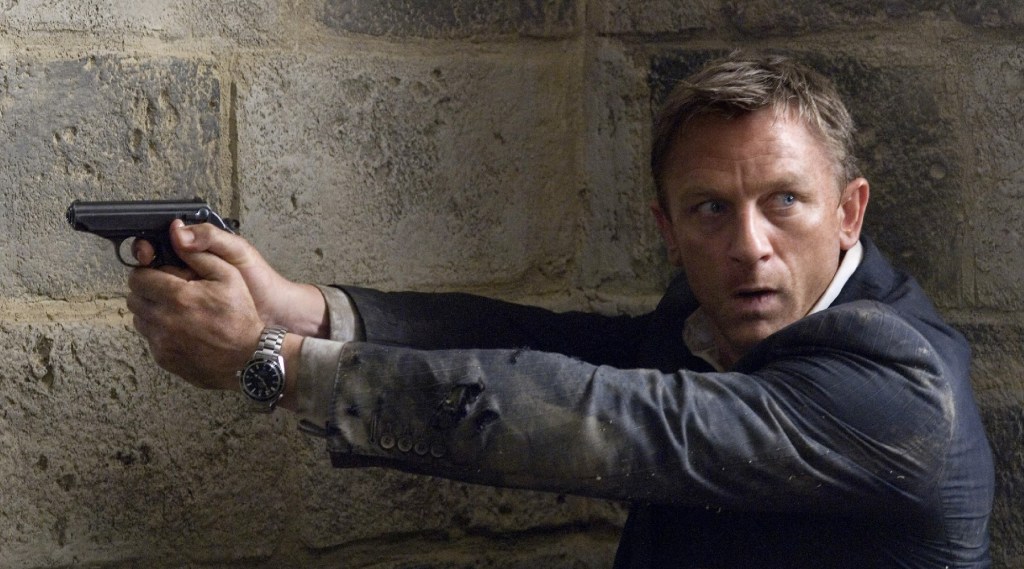
5. Quantum of Solace (2008)
Watching again Daniel Craig’s widely derided second outing as 007 for the first time in years, it becomes apparent that there is the seed of a pretty great Bond movie buried here—and “buried” is the perfect word since that great movie is entirely obscured by Marc Forster’s hideous direction and a screenplay that rushes from action scene to action scene with nary a moment for any of the story’s machinations to truly sink in.
Quantum of Solace was a troubled production to begin with—a switch in directors, a writer’s strike, and accelerated production schedule all conspired to challenge a movie that already faced pressure to live up to Craig’s first Bond thriller, Casino Royale. But while the leading man follows up his performance in the latter with another solid turn as an even more ruthless 007, the rest of the film around him isn’t up to par.
Quantum has been called a “coda” to Casino Royale, and it does literally pick up the story right from the end of that film, a first for the Bond franchise, which is not known for its movie-to-movie continuity. As Bond investigates the organization that was behind the death of Vesper Lynd (Eva Green) in the previous film, he soon uncovers a plot involving the destabilization of Third World nations, control of the world’s water supply, and shifting loyalties that may leave both the CIA and MI6 on the side of the bad guys.
The idea of Bond operating as a vengeance-driven, relentless killing machine against a backdrop of modern geopolitical crises is, on paper, a sound one. It was also tackled to some degree by the underrated License to Kill in 1989, with Timothy Dalton as Bond. But the story is difficult to follow, and the various players are hard to keep track of because the movie barely gives any of this time to breathe. Forster barrels from one action sequence to the next, and we don’t even get to enjoy those because his rapid-fire style of cutting renders everything into a jarring, senseless mush of nearly subliminal images.
It’s clear that Forster doesn’t know how to shoot action, and on top of that we have one of the weaker villains in the franchise (Mathieu Amalric) and a female lead (Olga Kurylenko) whose motivation was semi-lifted from the superior For Your Eyes Only (1981). This one is easily Craig’s nadir, but fortunately he and the series bounced back four years later.
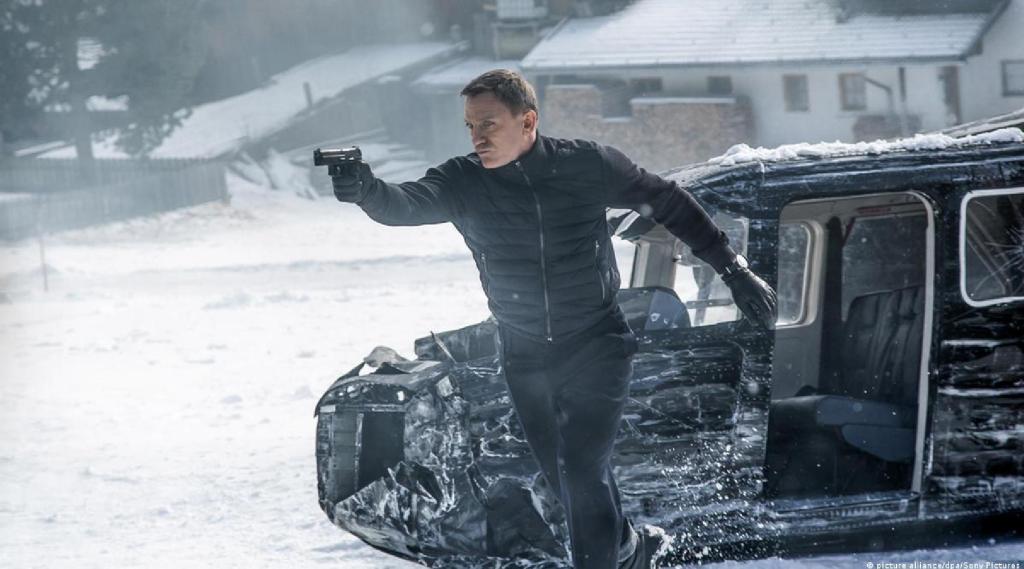
4. Spectre (2015)
With the exception of its third act, Craig’s divisive (and rushed) fourth outing as 007 is actually fairly solid, its action and plot points mostly in line with the “gritty” feel of Craig’s previous three entries. Yet it also stretches the Craig template a little, allowing for a few more gadgets (including some neat additions to his Aston Martin), some homages to past films, and a little more humor. In other words, it lets Craig come as close as he ever does to the Bond played by many of the previous five actors.
The story is simple: Bond must bring down the criminal organization named SPECTRE, which is behind all the other villains of his previous three movies, and stop its head, Franz Oberhauser, aka Ernst Stavro Blofeld. It’s all in good fun, and most of the first two hours of this lengthy epic breezes along with less of the solemnity of Skyfall and a touch more (perhaps too much) of the old Moore and Brosnan swagger.
But then that last half hour hits and the thing goes into freefall. The revelation that not only are Bond and Blofeld (a scenery-ingesting Christoph Waltz) really foster brothers, but that the latter started this deadly criminal conspiracy just because his daddy made him feel sad by loving James more, is ludicrous and only makes the 007 universe feel tiny. Craig also has no discernible chemistry with Léa Seydoux’s Dr. Madeleine Swann, the featured Bond woman with whom he drives off into the sunset at the end, despite the fact that he’s barely just met her. And why does he walk off anyway? Is Bond retiring after just four movies?
Sam Mendes directs with flair and delivers some exciting set pieces, including an opening fight in an out-of-control helicopter, and Thomas Newman’s score is propulsive. The supporting cast is uniformly good, and it’s nice to see Bond staples like M (Ralph Fiennes), Moneypenny (Naomie Harris), and Q (Ben Whishaw) operating as a team. But the franchise’s feeble attempt to create something akin to the MCU—a Bond version of a shared universe—firmly keeps Spectre toward the back of the pack.
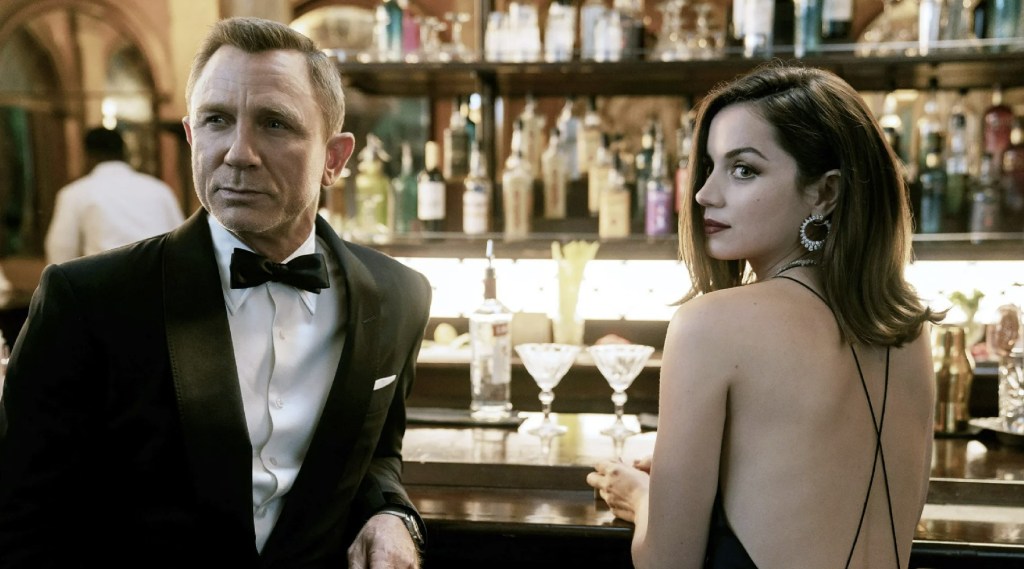
3. No Time to Die (2021)
In his final outing as 007, which was delayed for six years by his own uncertainty over returning and then the COVID pandemic, Daniel Craig came back to give his finest performance in the role. Craig’s 007 is by now a near-perfect fusion of strength, brutality, resourcefulness, humor, inner pain, and physical weariness—making the Bond of No Time to Die possibly the most layered and multi-dimensional edition of the character in the franchise’s entire 60-year run. But there’s also the movie itself, all 163 minutes of it, which makes it the longest Bond adventure to date. And to be honest, it feels like it sometimes.
Directed by Cary Joji Fukunaga (the first season of True Detective), No Time to Die ties up a lot of loose ends and brings back most of the characters from the Craig era for an encore, while also delivering some of the series’ most smashing action sequences and hard-hitting emotional moments. Yet the story at the core of the movie is thin, the villain not well defined, and the movie sometimes feels like it’s wrapping up those other storylines at the expense of a more dynamic central plot.
The overall effect is a movie that is frequently entertaining and often intense, even though the held-over relationship between Bond and Madeleine (first introduced in Spectre) feels as forced as ever and the motivations of Rami Malek’s villainous Safin play like he watched Avengers: Infinity War a few times and really thought Thanos was the hero. Ana de Armas is the one new addition who crackles in a delightfully kooky action sequence in Cuba, with Craig and de Armas reprising their compelling chemistry from Knives Out. Alas she is only in the movie for about 15 minutes. That puts the load squarely on Craig’s broad shoulders, but luckily he can handle it: the man is compulsively, endlessly watchable as Bond, he gets some good jokes and meatier dialogue this time, and you almost wish that he would stick around for another entry.
No Time to Die strives to be an epic and just misses; it’s certainly a huge movie and there’s a lot of it, but it never quite takes your breath away. Yet Daniel Craig does achieve that effect as Bond, giving a final performance that the series has never quite seen before. And unlike nearly every one of his predecessors, his is a sign-off for the ages, as No Time to Die takes Bond boldly where no other 007 adventure has taken him before… into the grave.
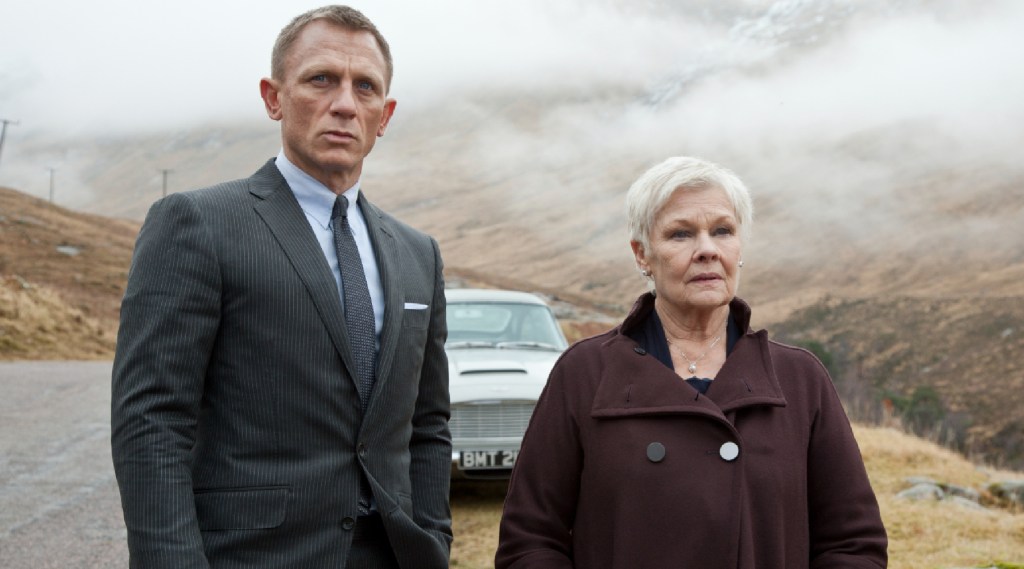
2. Skyfall (2012)
There was a four-year gap between Quantum of Solace and Skyfall, the third-longest in the series’ history, due to the seemingly never-ending financial troubles of distributor MGM. But the Eon Productions team put the longer break to good use. Perhaps knowing that there was much to prove after the underwhelming Quantum, they made sure to assemble a top creative team for Skyfall while fashioning a story that was hard-hitting, personal, and high-stakes.
With Sam Mendes directing and the legendary Roger Deakins as cinematographer, Skyfall is easily the most beautiful Bond film ever made, and it also features one of the best title songs in the entire catalog thanks to Adele. The film stars Javier Bardem as Silva, a shadowy cyber-terrorist who has targeted M (Judi Dench). It turns out that Silva was an MI6 agent years ago whom M gave up as part of a larger deal with China, and he has now come back for his revenge. This comes as M’s entire tenure as head of MI6 is being called into question by government officials, even including her judgment regarding 007.
The movie is filled with tremendously compelling sequences, including a neon-lit battle high atop a skyscraper in Shanghai and the opening train fight that sends Bond into a spiral of ill health and depression. Bardem makes for a creepy, slightly campy villain, one of the best of the more recent entries, although the whole “the bad guy lets himself be captured as part of his master plan” plot turn was already used earlier and more effectively by The Dark Knight (2008) and, in the same as year as Skyfall, The Avengers.
In reality, however, this is a story about M and Bond, with both them coming to terms with their pasts. Bond’s ancestral home, where the fiery climax takes place, is appropriately cold and desolate, and it’s easy to see it as a metaphor for his own haunted, barren personality. As for Judi Dench’s M, while she was carried over from the Brosnan years in a bizarre stab at continuity (which doesn’t make much sense seeing how Craig’s Bond is an “earlier” iteration than Brosnan’s), she is given the full spotlight here and the relationship with Craig’s 007 is much more personal than anything that has come before. Her death in his arms is about as moving as anything in a Bond film gets.
Since M is essentially the female lead this time out, Berenice Marlohe’s Severine fails to make much of an impact during her brief screen time, although happily the new Q (Ben Whishaw) and Moneypenny (Naomie Harris) are both delights. And with Ralph Fiennes’ Gareth Mallory becoming the new M at the end of the movie, all the pieces of a “traditional” Bond mythology are slotted into place.
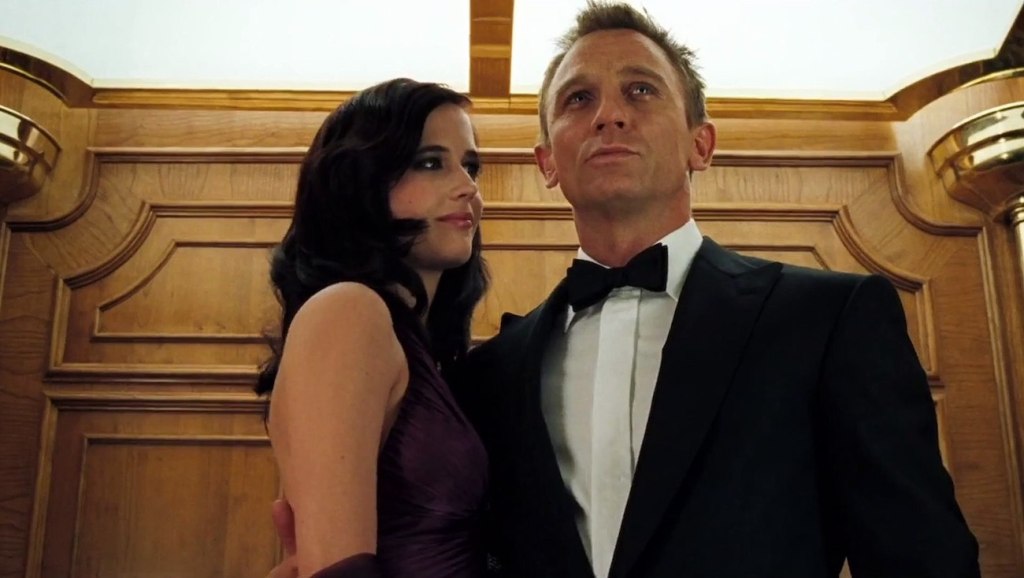
1. Casino Royale (2006)
As if there was any other choice. Casino Royale is not just Craig’s best outing as Bond, but one of the finest entries in the entire 25-film canon, easily ranking within the top five. Directed by Martin Campbell, who also helmed Brosnan’s excellent debut in GoldenEye, it instantly establishes Craig as a tough, brutish, no-nonsense 007, a man who still has to learn not just how to control his most aggressive impulses but also how to wear a tux. Even with the weird continuity we’ve mentioned earlier, this is clearly as close as the series has gotten to a Bond origin story, and it’s a banger.
Casino Royale goes back to Fleming’s first novel and is the most faithful film in the series since 1969’s On Her Majesty’s Secret Service—most of the films after that had used just a title and perhaps a few remixed story elements. The film also posits the question that has haunted Bond at various points throughout his career: Is this truly the life he wants to lead or is there something else out there for him? That choice is personified in Vesper Lynd (Eva Green), the government treasury official he falls in love with, and whose betrayal firmly sets him on the path to become “Bond, James Bond.”
Aside from Craig, Dench’s M, and Green (the best “Bond Woman” since Barbara Bach’s Agent Triple X in The Spy Who Loved Me), the movie introduces Jeffrey Wright as Bond’s CIA counterpart, Felix Leiter, who should have been used more in subsequent outings, and Mads Mikkelsen as Le Chiffre, the villain with whom Bond matches wits more than fists. The 40-minute poker tournament at the center of the film between the two is a master class by Campbell and the writers in making a card game exciting and suspenseful to watch, with the stakes steadily increasing both at the table and away from it.
The fact that a card game is the major set-piece in the movie clearly validates the producers’ quest to veer away from the gadgets and the visual effects in favor of an earthier, grittier Bond, and combined with Craig’s rough-hewn, scrappy, and complex performance, the cumulative result was the kind of James Bond thriller that hadn’t been seen in literally decades. Casino Royale was an explosive, game-changing introduction to the now-finished Daniel Craig era, and whoever comes next is going to have one hell of a lot to live up to. But one thing is certain:
James Bond will return.
